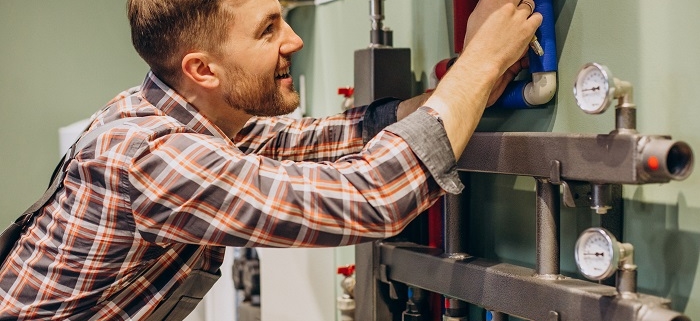Water in Basement: How to Fix a Leaking Basement
The basement might not be an area you visit frequently. Storage is its primary purpose, so you go there only when putting away or grabbing an item. But despite not using the basement actively, optimal maintenance is imperative.
Recognizing problems and fixing them efficiently is vital to avoid massive repairs. This guide focuses on how to notice a buildup of water in basement areas and resolve this issue quickly. Keep reading to learn how to deal with the problem and keep water out of your basement in the future!
What Causes Water in the Basement?
The underlying cause of water in basement areas varies. It comes down to old houses or installations or setups that haven’t been adequately maintained. Here are the common reasons that lead to water damage:
- Cracked basement walls or floor. Some cracks would be visible, while others are harder to notice. The fix depends on how severe the issue is. If you have cracks in the foundation, you should resolve them immediately. Don’t hesitate to contact our professionals to get the job done right.
- Broken or leaky pipes. The majority of your plumbing system should move through the basement. It’s why a small leak can cause water to seep into your basement.
- Poor drainage around the home. Do you notice water in the basement after rain? It shows your drainage system isn’t working well. The good news is that the solution might be as easy as cleaning your gutters.
- Open floor drains. This is a common issue in old houses since they are equipped with floor drains. If these lines clog, water backs up into your home and leads to a buildup.
- Sump pump failure. This problem occurs with the pump that drives the water away from your home. Your pump might not be capable of dealing with heavy rainfalls, so you could see water in the basement only after storms.
- Water heater failure. These appliances can hold dozens of gallons of water. A small leak isn’t a big issue, but a significant failure often leads to a pricey basement repair.
What Are the Signs of Water in the Basement?
If you pay close attention, it should be simple to notice water leaking into basement areas. Here are the signs that could reveal basement leaks:
- Efflorescence. This refers to stains that occur on surfaces after the water evaporates. They are chalky and whitish and often look like they sparkle. Although efflorescence is easy to remove, look for a potential water problem if it occurs frequently.
- Musty odors. If something smells weird, you need to find the cause behind that odor. Musty smells coming from water leaking into basement areas are frequent. The leak might not be noticeable easily, but make sure to identify its location.
- Mold. Basements are damp and dark, making them ideal for mold. Add water damage to the equation, and mold growth could be significant.
- Stains. If you have a carpet, inspect it for discoloration. The same applies to ceilings, walls, and basement floors. If you notice discoloration, mainly black or brown stains, you need to call the best plumbers in Las Vegas as soon as possible.

How to Fix a Leaking Basement?
Before dealing with the problem, you need to identify the source. Is the leak caused by melting snow after winter, or are your pipes clogged? The three common sources of basement water include humid air, interior moisture, and groundwater. After identifying an issue, you can proceed to fix it. If you can’t handle it yourself, don’t hesitate to contact Las Vegas general contractors. They can fix the problem and ensure there aren’t any other potential threats that could cause damage to your home.
How to Stop Water From Seeping Through Basement Walls
If you notice a gap in a pipe, it’s possible to plug it yourself. You need polyurethane caulk or hydraulic cement to waterproof basement walls in affected sections. These aren’t expensive, ensuring the basement leak repair remains affordable. Make sure to inspect the spot and see if damage reoccurs. If the water continues seeping through, it indicates a bigger problem that requires calling a professional.
How to Keep Water Out of the Basement
It’s best if you could prevent water from even entering your basement. Here are some tips for applying to minimize the leak risk:
- Keep your downspouts and gutters clean. Experts suggest cleaning them every six months or more often if necessary. An occasional check if they are in good shape is a smart move.
- Adjust the landscaping if necessary. Inspect the areas around the foundation. Make sure the soil slopes away for a minimum of three feet. If rain or snow falls, the water should flow away from your home.
- Deal with gaps and cracks. Even if you don’t notice water damage immediately, cracks are a way for it to enter your home. Plug or fix them yourself, or call professionals, especially if you want to waterproof basement walls.
- Install or repair your drain tile. Most homes already have it installed, so check if it works properly. A drain tile will prevent the water from going up the floor and into your basement.
It’s not easy for homeowners to notice a leak or recognize risks that could lead to water damage. That’s why it’s imperative to contact plumbing professionals. They can analyze the current condition and all potential threats to ensure your home is in optimal condition to keep the water out of the basement and other areas.





